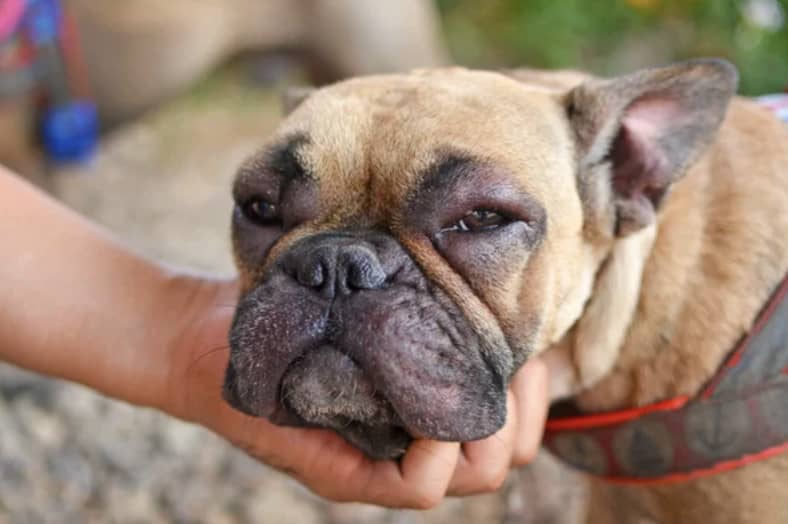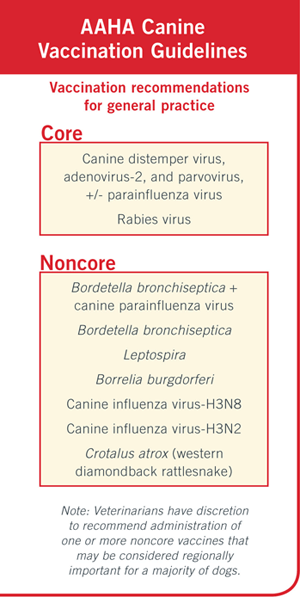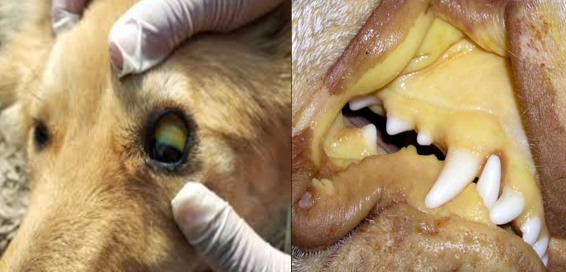Should you vaccinate your pet for Distemper and Parvo? What about Leptospirosis?
I’ve had a lot of clients express concern about speaking to their vet about minimal vaccine protocols. Some say they feel dismissed, judged or the other way around – that they feel the vet may feel dismissed or judged by their decision to use fewer vaccines. This blog is an attempt to bridge the gap – see both sides – so that you can have an open conversation about this with your veterinarian and hopefully everyone feels heard/ understood. This is not a blog about Dr. North telling you if you need the Leptospirosis vaccine or not. That should be decided after discussing this with your vet. This is to help you do just that effectively. Again, this is not a pro/con about the vaccine itself. I am not advocating for or against this vaccination. I’m advocating for the relationship between you and your vet. I’m advocating for open and honest communication. This is more of an attempt to preserve one of the most important relationships in everyone’s world: that relationship between you, your pet and your veterinarian.
I will arrange the discussion in this way:
- What clients frequently say to the vet.
- What veterinarians likely think when they hear this.
- How to better phrase the question or comment to avoid misunderstanding.
Beginning thoughts please read:
To the DVM’s out there: people are afraid. They don’t know what is true/ what to believe. We have all felt this way at one time or another with things that are outside of our field of expertise. For example, a very small version of this is when you get differing opinions about how to fix your car, should we get the flu shot or not, what is real when we watch the news vs what is really happening? Try to remember the client’s perspective: They love their pet so much and they are not an expert in the field of veterinary medicine. They likely know someone or have even experienced themselves auto-immune disease in a dog or cat and they know that vaccines are implicated as a cause. This is really scary, what’s worse than your pets immune system turning on them because you chose to give them a vaccine?
To the Clients: Your vet is a person. A good person with a tender heart most likely. The vast majority of us have wanted to be a veterinarian since we were a child. One thing we never dreamed of when we were thinking of growing up to be a vet is harming a dog or a cat. Let alone, sitting in an exam room with a pet and client and being accused of offering a service that would harm a pet. Can you imagine what that does to our soul? (more about importance of your relationship with your DVM)
So here we go!
Conversation example # 1
Client statement:
“Dr. Veterinarian, I don’t want to vaccinate my pet for leptospirosis because he/she had a vaccine reaction to it last year.”
What the veterinarian is thinking/hears:
Remember how analytical and specific we are as a group. When a term is used incorrectly, we can barely concentrate on what you are actually saying. DVM’s may try to argue with me here, but I’ve known hundreds of us, and in general, this is a true statement. We are smarty pants people.
Let’s start with what is a vaccine reaction vs a vaccine side effect:
When we say “vaccine reaction” in veterinary medicine, we are talking about hypersensitivity types I, II, III, an IV reactions: specifically facial swelling, vomiting, trouble breathing or very rarely anaphylaxis.
A normal, expected vaccine side effect would be something like being sore in the area, running a low grade fever (which makes the pet feel lousy for several hours or have a decreased appetite). I will say it again, this is something that we expect in some patients. When I get my tetanus vaccines, I expect to be sore. When I was doing some relief work for the Army, they gave me several vaccines before I could work on base and I had a fever, chills and did not feel well because my body was mounting an immune response. Remember, this is what often happens when the vaccine is working/ doing what it is supposed to do. (I am not advocating for making a pet sore or saying that having a fever and chills is ok with me. It’s not! ) BUT please know this is NOT A VACCINE REACTION IT IS A SIDE EFFECT THAT WE EXPECT WITH A LOT OF PATIENTS. I find it is less likely to happen when the individual vaccines are split up by 2 weeks.
So, if you tell your vet your pet had a vaccine reaction last year, but your pet was sore in the left rear leg for a day, this is a gross overstatement. I would not tell a Dr I can’t have tetanus vaccine because I had a reaction to it if my arm was simply sore after the vaccine.
How to better phrase the comment to avoid misunderstanding:
“Dr. Veterinarian, my dog/cat was really sore after the vaccine last year, specifically on the left side. I would rather not use this vaccine this year. I’m happy to sign a waiver to alleviate you and your clinic from the liability of my choice.”
OR
“Dr. Veterinarian, my dog/cat was so painful after the vaccine last year but I know he/she needs to have it. Could we please split up the vaccines giving one at a time so I can tell which seems to have this effect on him/her? And is it possible for me to take a medication home to combat the negative side effects I saw last year?”
So, in summary, if your pet was sore or sleepy after a vaccine last year, it’s an overstatement to tell the vet your pet had a “reaction last year.” Because your vet is an analytical, science person, when you say the pet had a reaction, they ask for details. You then state that they pet didn’t eat dinner and was exhausted all day. At that point, the vet feels relieved because they didn’t have an actual reaction so you may even feel like they do not validate your concerns at this point. I think that people often pick up on the energy where the vet relaxes once they realize it was not a “vaccine reaction” and feel like they are not being heard. On the other hand, if your pet vomited, had facial swelling etc, then it is appropriate to state your pet had a vaccine reaction and this should be stated in the medical chart.
 angioedema from a true vaccine reaction
angioedema from a true vaccine reactionSource: Today’s Veterinary Practice
 another true vaccine reaction
another true vaccine reactionSource: Kingsdale
VS.
 a dog that was too sleepy after vaccines last year
a dog that was too sleepy after vaccines last yearConversation example #2
Client: “Dr. Veterinarian, my breeder told me to never vaccinate this breed for leptospirosis.”
What the veterinarian is thinking/hears: 1985 called, they want their medical information back. 🙂
But seriously, this is an outdated and inaccurate statement or reason not to vaccinate – that a certain breed or even all dogs are more likely to have a true vaccine reaction to leptospirosis.
Facts: the most recent studies show that leptospirosis vaccine is no more likely to cause a reaction than the others commonly given. This thought comes from the initial vaccine that came out
How to better phrase the question to avoid misunderstanding:
“Dr. Veterinarian, please tell me about leptospirosis and the vaccine. My breeder is not big on it.” Once you feel like you have a grip on what is this disease, is my pet likely to be exposed if so how would they be exposed and what would it look like if they got ill, you can then make the informed decision about vaccination. Remember that you are your dog’s advocate and you choose what vaccines they get. If you hear all about leptospirosis and you still don’t want to vaccinate your pet for this, again, you can state that you are happy to sign a waiver. You may also state that you would like to just stick to the “core vaccines” recommended by AHAA (below). There is a link to the AAHA core vaccine protocol at the bottom of this blog. (since photo is a bit blurry see reference at the bottom of post)

Conversation example #3
Client: “Dr. Veterinarian, I don’t want to over- vaccinate my pet.” Often clients say this as well: “I only want to vaccinate for what is necessary.”
What the veterinarian hears or is thinking: Hear me out on why this can be perceived as an insult to a DVM or a technician who has dedicated their lives to animal medicine. “Why would I ever offer something that is too much for a pet? Why would I offer something that is not ‘necessary’ for them?”
This is a statement that hurts my feelings in the clinical setting because it assumes that we are somehow harming the animals on purpose. Please remember that your vet has seen a dog just like yours die from the disease you are discussing. DIE! Death! Fatality! Once you see something like this, you cannot unsee it, it shapes you as a doctor. So that’s why the vaccines are recommended, because these disease can kill your pet and they are preventable. How is preventing death somehow considered excess? How is potentially saving a life not necessary? We want to prevent any issues but in a DVM’s mind we know the likelihood of a dog getting the disease leptospirosis vs the likelihood of it triggering an adverse event.
 Icterus in a dog with leptospirosis
Icterus in a dog with leptospirosisSource: Lachance Group
How to better phrase this to avoid misunderstanding, keep the conversation civil (and avoid hurting your vet’s feelings):
Dr. Veterinarian, I understand the risk of leptospirosis and I would prefer to just give the vaccines that are considered to be “core” by AAHA for today. I really appreciate you explaining that to me.
If you happen to feel pressured, that is not cool. But try to just stay calm and tell them thank you. You can also have Dr. Jean Dodd’s vaccine protocol handy or have a copy of AAHA’s vaccine recommendations. You can show them this protocol and tell them that’s what you prefer to do. The one thing I will say about that is the Thimerosol thing has pretty much been debunked. So much that the one company who makes the Thimerosol free vaccine (Merial) won’t even push this as a possible reason to buy their vaccines over others – because they know the science isn’t there. Big Pharma will always find a way to make their products stand out over others but Merial hasn’t done this. That should tell you something. But, you can usually find a vet who has it if you still want to go that way. Just ask if they use Merial brand rabies vaccines in that clinic. In addition, you can avoid some adjuvants (additional ingredients in vaccines) by using Dr. Jean Dodd’s protocol as well. I do think this part is a good idea.
Conversation example #4
Client: Dr. Veterinarian, could we please run titers first to see if my pet is already immune to this disease?
Veterinarian: What the veterinarian is thinking: yes, we can! Titers for Distemper, Parvo virus and Rabies. However, even if your rabies virus shows your pet is protected, it is still the law to vaccinate. I know this is frustrating, but even if I believe the titer says your pet is protected, I am not legally allowed to tell you it’s ok to break the law. So, I would feel a lot better if you signed a consent form that I recommended the vaccine and you declined while you wait on titers even though this was explained to you.
See, we can all get along! I know clients and DVMs are willing to talk about these things, we all just want to be validated and heard. I know I’m biased and coming at this from the DVMs side, but I ask each side to put themselves in the others shoes: Clients are hearing that vaccines can cause diseases, what does that mean? They are hearing that some of them are not necessary and that we push these vaccines to make money. Maybe everyone can step back, give each other some credit that we both want what is best for that fuzzy angel that is probably sitting between the two of us as this is discussed.
Will vaccinating your pet trigger an auto-immune disease:
The chances of this are much lower than your pet contracting the diseases that are so common and fatal that the industry made up a vaccine for them. However, yes, it is still a risk. This is one of the main reasons I prefer to run titers rather than assuming a pet is “due” for a vaccination. The consensus is that there are multiple factors that lead to auto immune disease. Try to decrease toxins in the diet, environment, etc (no febreeze, non toxic floor mopping, no RoundUp, no candles etc). If you’re using Round Up, have a lot of scented candles, and feed your pet grocery store kibble but try to decline the Leptospirosis vaccine because it may hurt them, you’re doing it wrong. (my opinion, of course).
Dr. North on record for what she vaccines she uses in her own pet:
This is what people always want to know isn’t it? You may have even skipped to this part.
My dogs are 13 and 14 year old Australian Shepherds – a breed that commonly gets immune mediated diseases. When they were younger and we did a lot of hiking, I did vaccinate them for leptospirosis. Now, I run titers for Distemper and Parvo, I do not vaccinate for Lepto and I do vaccinate them for Rabies every 3 years – it’s the law (right now). I would LOVE it if the law would start to accept titers as proof of vaccination/ immunity.
Why don’t all vets talk about titers?
Keep in mind how much the veterinary industry is slandered for being too expensive. If you- the reader- has never said something like this in a conversation I would like to hear from you. If you have never complained about spending money at the vet, your are in the 1%. Remember the very first paragraph and how your vet is person with sensitive feelings and this profession is part of their identity. When you say you are not getting what you are paying for, it is extremely personal and hurtful. A vaccine costs the client 20 bucks or so. Titers are going to cost $200 and higher depending on what you are doing. If you are the type of client that has commonly stated they have financial constraints, and especially if you have indicated in the past that you don’t value their services (Their very identity/heart and passion!!) then it makes sense the vet wouldn’t bring this up. When you say things like this, unfortunately, a lot of us remember it. That’s because it’s hurtful.
Remember, you are your pets advocate, come prepared to ask questions. I recommend telling the receptionist when you call to make the appointment that you are interested in running titer tests for the core vaccines. If finances are in an issue, you don’t have to run every titer on the same visit, you can split it up. And, if finances are an issue, call now to find out prices for this and start saving/ know if this is a possible way to go for you. We are always happy to split up vaccine titers per visit to make it easier to finance.
What about Cats?
The titer thing isn’t perfected with cats yet.
Be honest with yourself: Does your cat run the risk of going outside? Is it constantly trying to slip past your feet when you are bringing in the groceries? Does your cat try to bite veterinary staff or scratch them? If your cat gets out, will it get into a fight/ has this happened before?
Fighting as a risk: This is how FeLV (feline leukemia virus) is spread. They are also at risk for FIV with fighting and the vaccine for this has fallen out of favor.
Rabies vaccine in cats:
PureVax is considered to be the safest.
Most veterinary schools are teaching to give vaccines below the knee or elbow or in the tail. This is because the most common issue with vaccines in cats is tumor at the injection site. This is not happening as much since we have the PureVax brands now and with awareness of the issue. Still, if it did happen, it would be much better if it was in the tail not on the hip. (because you can amputate the tail and save a life that way).
If you cat is a biter/ scratcher and you choose not to vaccinate for rabies, you are choosing to have them quarantined if they do these things. It’s a simple as that. We are not allowed to decide as a profession what cat may or may not be exposing the staff to a 100% fatal disease. It sounds dramatic but that’s how the law sees it. I strongly recommend finding a fear free veterinary practice if your cat is doing these things at the vet. I advocate for medication before the visit to calm them down along with all of the fear free practices. Cats want to run away. They do not want to fight. But, if corned, scruffed and prodded enough, they are armed and ready to fight. Fear free practices make it their goal to not let cats feel this way so they don’t feel like they must fight. You can find one close to you in this link:
https://fearfreepets.com/resources/directory/
Chill protocol:
There is a link to more information on this on my Facebook page, here: Chill Protocol to Manage Aggressive & Fearful Dogs
One last tip if your pet doesn’t like coming to the veterinarian’s office, PLEASE BRING A FECAL SAMPLE! I no longer use rectal thermometers in my personal practice, it is my personal opinion that rectal stuff is a lot of the reason we lose a patient’s trust. But what if you do it three times in one visit? Take the temp, get a fecal sample and do a rectal examination?? It’s too much and this is part of your responsibility as their advocate as well. BRING A FECAL SAMPLE TO THE VISIT and START PLANNING FOR THIS THE DAY BEFORE. Keep a fecal sample by the door step in a poop bag from the night before just in case they won’t go the morning before the visit. But they don’t need a fecal sample for this visit? Bring it anyway and toss it if they don’t need one. This is 100% true for cats. You are already picking up their feces daily, take one extra step here as your cat’s advocate.
One more take home message:
An aside about treatment and prevention of TRUE VACCINE REACTIONS is this:
Just giving Benadryl before the vaccine has not been shown to keep it from happening again.
If your pet needs to be vaccinated and has had a hypersensitivity reaction, the current gold standard protocol would be this:
- Morning appointment and observation for at least half of the day.
- IV catheter in place the entire day
- Dex Sp (steroid) low dose IV before vaccine.
- Benadryl oral or injection before vaccine.
Not all DVM’s/ Clinics will do this but this is in fact the gold standard and it’s ok to be your pets advocate and tell them this is what you want. Say you legally need a rabies vaccine to travel with your pet but their face swells after vaccines. This is when you would suggest the above protocol.
Here is a link to some more info on adverse reactions to vaccines:
https://www.dvm360.com/view/adverse-vaccine-reactions-veterinary-medicine-update
Here is link to a more extensive talk about normal vs abnormal vaccine ‘reactions’
https://veterinarypartner.vin.com/default.aspx?pid=19239&id=4951409
Sources:
AAHA vaccine protocol:
https://www.aaha.org/aaha-guidelines/vaccination-canine-configuration/vaccination-canine/
There is an available, printable PDF above.
WASAVA: World
Dr. Jean Dodd
AVMA’s stance on titers: “there is no confusion at this point” (regarding if positive titers mean that DOGS are protected against disease) and this was in 2016
https://www.avma.org/javma-news/2016-07-01/titer-or-revaccinate
Info on vaccine titers for DVMs or clients
http://www.ksvdl.org/rabies-laboratory/dog-cat-vaccines-titer-testing.html
Clients if you want to be ahead of the game you can go ahead and register here:
https://www.vet.k-state.edu/asp/forms/ksvdl/New-Client-Register/

